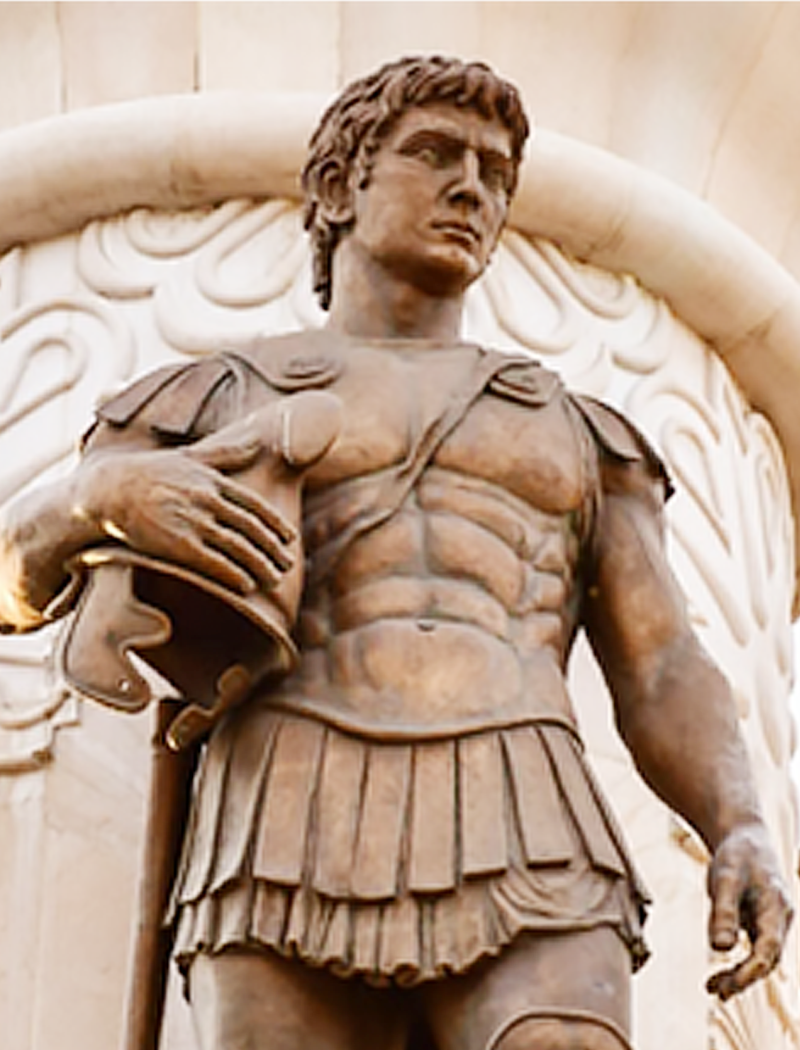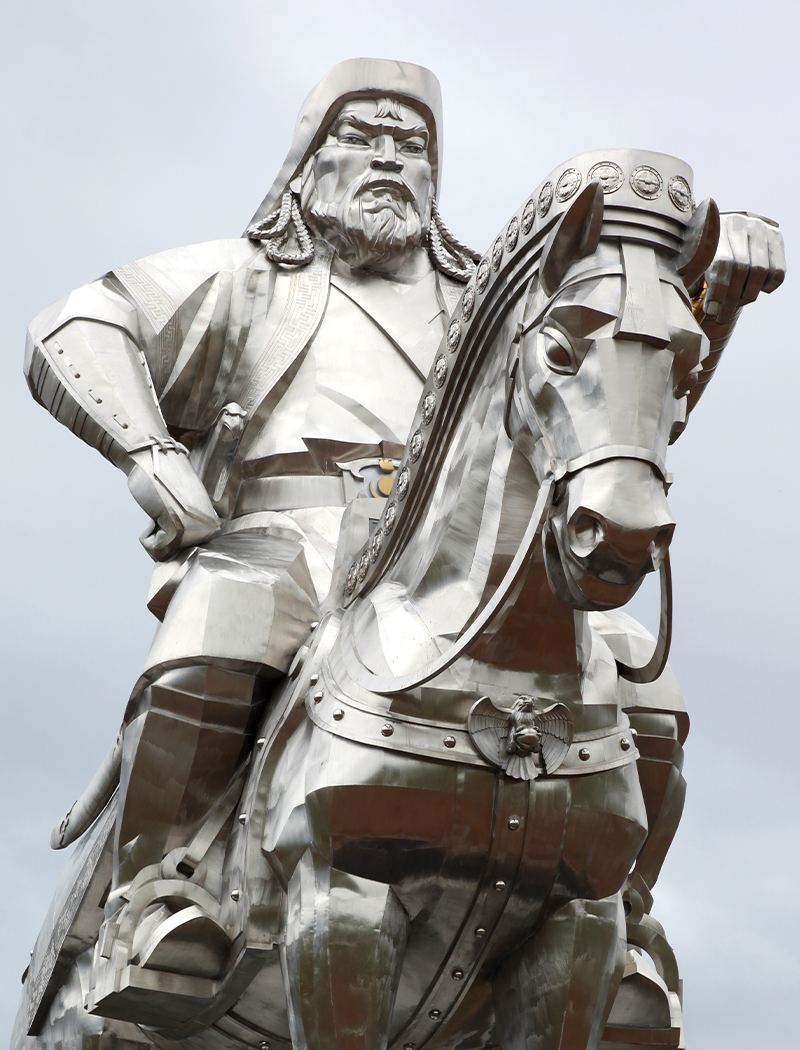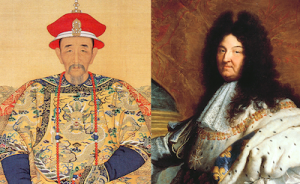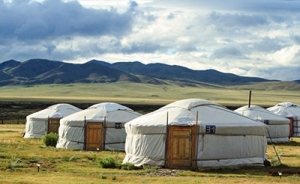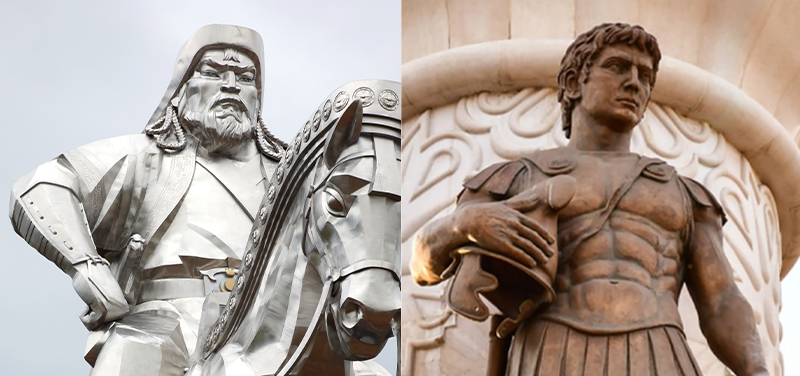
Famous Parallel Figures 6/10: Genghis Khan and Alexander the Great
In this series we look at historical figures from China’s past who have intriguing Western parallels.
Amidst the mighty torrent of history, few heroes in the East and West have stood out like Genghis Khan and Alexander the Great.
Alexander (356 B.C.E.–323 B.C.E.) and the first Great Khan (1162–1227) both had a thing about conquering the world. And they were both record-breakingly good at it. But in addition to their success on the battlefield and in empire-building, they also shared values and ambitions, a connection with their respective gods, and an interest in new knowledge and cultural diffusion.
Starting with his first victory at age 18, Alexander never lost a battle. Through his conquests, his empire became the largest the world had known—spanning over two million square miles from the Adriatic to northwestern India. His goal, however, was to reach the “ends of the world and the Great Outer Sea.”
Alexander was a bold and charismatic leader who fought among his men, personally leading them into decisive battles. He took the mythical Achilles, the greatest Greek warrior of all time, as his role model. And he considered Zeus, the king of the Olympian gods, his father. During the 13 years of his reign, Alexander attained a number of enviable titles including King of Macedon, Hegemon of Hellenic League, Pharaoh of Egypt, Shah of Persia, and Lord of Asia.
Alexander disdained hedonism, and pursued honor and self-restraint. He did not indulge in food (only wine), and was generous in rewarding his men for their achievements.
Interestingly, Alexander’s first tutor was Aristotle. Aristotle infused a philosophical take in the young prince, teaching him rhetoric, geometry, and astronomy. He also introduced Alexander to Homeric poetry and medicine, both of which became lifelong interests. An enthusiastic learner and avid reader, Alexander had a team of botanists and zoologists collecting wildlife specimen wherever they went, and always carried an annotated copy of The Iliad in his campaigns. Indeed, one of his greatest legacies is the spread of Greek culture across the ancient world.
As for Genghis Khan, he seems like a reincarnation of Alexander. Genghis Khan was the founder of the Mongol empire—hence the imposing 131-foot statue of him on horseback that looks out over modern Ulaanbaatar. He, too, was a charismatic leader with great prowess on the battlefield. As a young man, he was betrayed by a sworn brother; but after that defeat he, too, never lost a battle.
With an army of elite mounted archers, Genghis Khan united the warring nomadic tribes around him, then went on to conquer much of China and Central Asia to form the biggest empire in history. His advancement into Chinese territory paved the way for his grandson Kublai Khan to establish the Yuan Dynasty in 1279.
Legend has it that Genghis Khan was born clutching a clot of blood in his fist. When he became ruler, or khan, a shaman chief declared him the representative of the supreme god of the Mongols. And Genghis saw it as his destiny to conquer the world for this god.
“I am the punishment of God. If you had not committed great sins, God would not have sent a punishment like me upon you,” he is recorded as saying.
Still, Genghis usually gave cities a chance to submit peacefully, rather than face complete annihilation.
Genghis Khan was a military genius, and he was an astute leader in civil matters as well. Other than appointing some Mongol officials as supervisors, the Khan allowed conquered citizens to continue on with their lives as before.
He established and promoted international postal and trade routes. He ordered the establishment of a writing system for his people. And he never stopped learning from the peoples he came upon. He picked out the experts—top scholars, generals, craftsmen—from the conquered peoples, and always brought translators on his campaigns for this purpose.
He considered excessive wealth a foible, and shared the spoils of war with his men. He outlawed the kidnapping or selling of women. And for the thirteenth century, he was well ahead of his time in his policies for religious tolerance. As such, he helped many cultures spread across Eurasia.
* * *
Alexander and Genghis weren’t the only two leaders that were alike, but from their connection to mythological gods to their thirst for knowledge to the rule they played in spreading culture—they shared many uncanny similarities. In the end, the Greek Pharaoh and his Mongolian counterpart fell short of their ambitions to conquer the entire world. But they most certainly managed to influence it.

Betty Wang
Contributing writer


